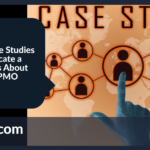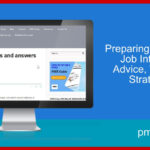When you work in a project management office (PMO), you’re already aware of the value your activities add to the business you work in. The wider business may not have as clear an understanding of the importance of your PMO, so we’ve got three strategies to educate a business about your PMO.
Making sure the business is aware that your office exists through raising awareness of your PMO is the first stage of securing the future of your office. From there, you need to embed knowledge about your PMO and the value it offers across the business.
To move from awareness to education about your PMO, we’re going to look at:
- Exactly why you need to educate the business about your PMO
- Three strategies you can use to educate about your PMO
- How you can measure the success of each
And we’ll follow up over the coming posts with more details about how to implement each strategy and which is best for your PMO and business.
Why do I need to educate the business about my PMO?
It’s somewhat received wisdom that many PMOs are doomed to fail and can end up being closed down within a few short years. Making sure people you work with, for, and around know the value of your office can help prevent PMO failure.
PMO failure isn’t the only reason you want to be sure the business you work in understands your activities and value. You should educate the business about your PMO because:
- You’ll get an overall better buy-in when you go beyond general awareness-raising.
- Your office will see more enthusiastic support when you need to ask for help from other areas.
- When it comes time to recruit for your PMO, you should have a better pool of internal candidates keen to work with you.
- If you try to bring about changes to the wider business, you’ll already have established trust for the capabilities of your PMO.
By offering detailed business knowledge rather than general awareness, you’re able to clearly demonstrate your value to the people that matter – those who you work with every day.
Three strategies to educate your business about your PMO
Your PMO will be used to creating frameworks and templates for projects to work within, but educating a business about your work isn’t a one-size-fits-all approach. Here, we’ll outline three strategies you can use, and we’ll dive deeper into each in this series of articles.
Offer management training and support
Since one of the roles of a PMO is to provide best practices for project management, you can consider offering management training across the wider business.
Although project management is different to office management, there are lots of key principles that can be adapted for other use cases. Some project methodologies can work in day-to-day management and monitoring, and data reporting can translate well.
Success will be measured by overall increased efficiencies across the business, which will strengthen the case for your office to stay in place.
Hold space as a resource
Your PMO has a wealth of management resources, so you can open up your library of documents, guides, and reports to the whole business. Letting people use and repurpose your work will show how useful the work you do is.
You can also offer job shadowing. Allowing people to come to your office to learn the work and help them progress in their careers is a great way to provide real insight into the work you do.
Success can be seen through how often your resources get accessed and the number of people who come in to shadow your team.
Present project case studies
What better way to educate the business on how successful your office is than to showcase specific examples. You can present video and written case studies and focus on how the project was delivered.
Success can be harder to measure with using case studies for education, but you can look at how often they are accessed and how much people engage with the PMO after them.
Educating a business about your PMO
To protect your PMO, you need to make sure the business you operate in understands your value. Get deep into that value by using our three strategies to educate the business about your PMO.






